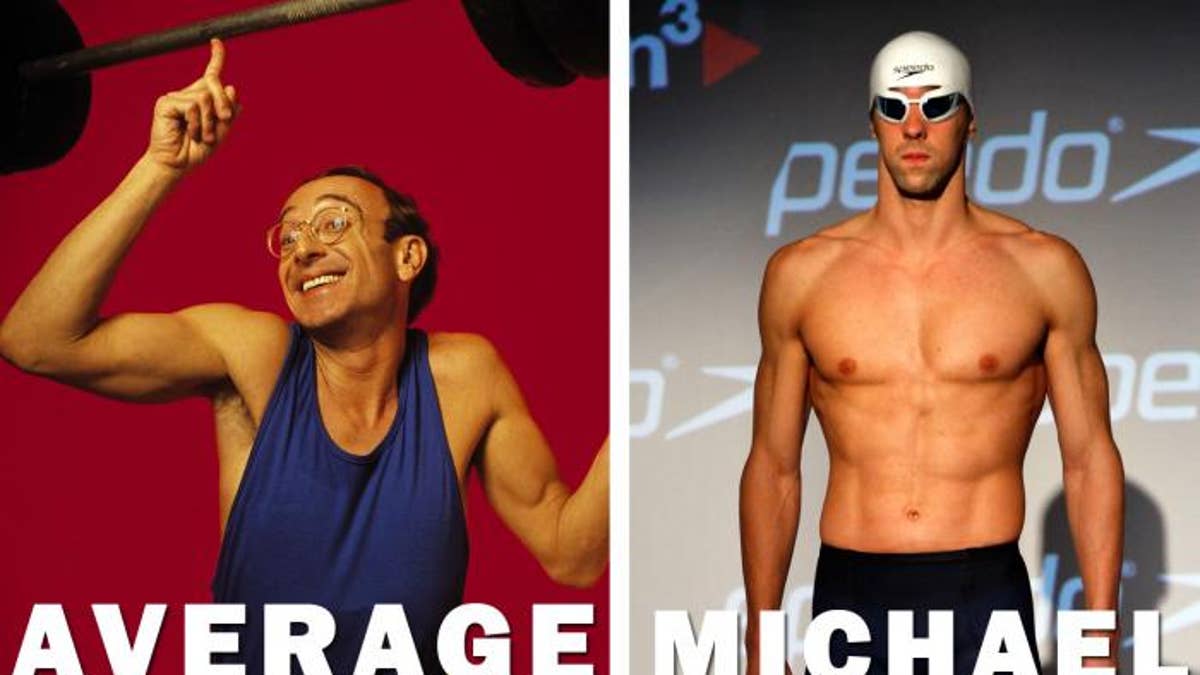
(Reuters (right))
Olympic athletes train for years to get into tip-top shape for their chance at being the best in the world. That training includes consuming an amount of calories that the Average Joe couldn’t possibly fathom.
Olympic swimmer Michael Phelps has boasted about eating between 8,000 and 10,000 calories a day, and basketball players can consume 7,000 calories a day, according to news reports. For the average weekend athlete, a daily average of 1,800 to 2,000 calories for women and 2,400 to 2,800 calories for men will suffice. Despite the big difference in calories, Olympians’ diets can provide insight into how the average athlete can stay strong, energized and healthy.
Energize with complex carbs: Most Olympic swimmers require more than 6,000 calories per day, with a diet low in fat and high in complex carbohydrates. These carbs are necessary to store the amount of energy needed for practice and competition, and to build and maintain muscle.
- The average swimmer should make about half of their plate complex carbohydrates for slow release of energy throughout the day.
- Complex carbohydrates include whole wheat bread and pasta, brown rice, potatoes and lentils.
Pro basketball players also need plenty of carbohydrates to store enough energy to run for hours and keep up their strength. Tips for adding extra carbs into a diet (while staying fit) include:
- Starting the day with a carb at breakfast, since glycogen stores are lowest in the morning. Cereal, oatmeal or whole-grain toast are good choices.
- Choosing carbohydrates throughout the day that are unrefined, such as whole grains, starchy vegetables or pasta.
- Adding fruit to meals or snacks.
Reap the benefits of balance: Distance runners have the same nutritional needs as everyone else, only more so. A balanced, nutritious diet consisting of about 2,500 calories per day prevents injury, sustains endurance and contributes to faster times. Examples include:
- Complex carbohydrates.
- Lean proteins, such as pork, poultry, fish, low-fat dairy, whole grains, beans and egg whites.
- Nuts, fish, avocado and other heart-healthy fats.
- Water (drinking plenty throughout the day instead of lots at once, and drinking before thirst sets in to prevent dehydration).
Power up with protein: Professional baseball players may require 1,000 to 1,500 calories more per day than the average person, from a balanced diet including complex carbs, plenty of fluids and lots of protein. Examples of high protein foods include:
- Beef, poultry and fish.
- Eggs and dairy (including cheese and yogurt).
- Nuts, nut butter and seeds.
- Grains such as quinoa.
Enhance performance all around: The Olympic weightlifter diet is a beastly one: Men can eat about 4,000 calories a day and women about 3,000 calories, with the goal of gaining lean muscle mass. The average gym rat or weightlifter should incorporate the following foods and nutrients for a similar effect:
- Protein for muscle gains and complex carbs for training are most important. The general rule for nutrient needs is 0.5 to 1 gram of protein per pound of body weight.
- Protein should be the main point of every meal. The body can only process a certain amount of protein in one sitting, and this is why eating several meals with a gap between each one is recommended for maximum digestion.
- Good sources or protein include meat, poultry, fish, eggs and dairy.
